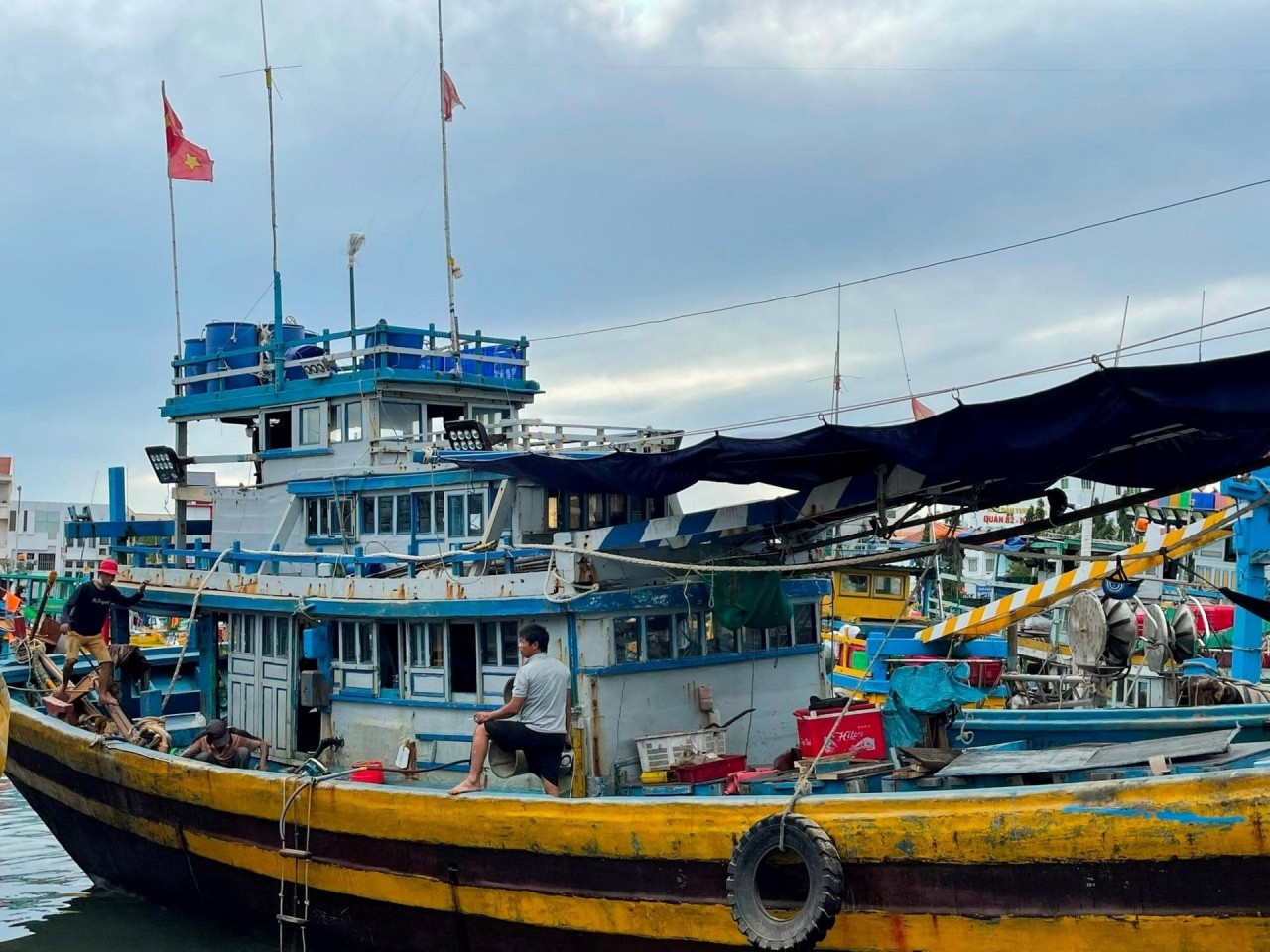Vietnam Coast Guard Puts More Efforts Into Fighting Illegal Fishing
The Vietnam Coast Guard (VCG) High Command has said that it will take more drastic measures to fight illegal, unreported and unregulated (IUU) fishing, contributing to maintaining order and safety at sea, and sustainably developing the maritime economy while consolidating national defence and security, according to VNA.
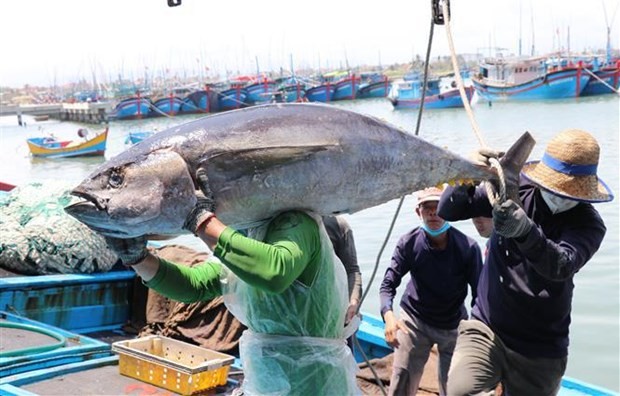 |
| Tuna caught by Vietnamese fishermen. Photo: VNA |
Along with the implementation of directions from the Prime Minister and the steering committee for IUU fishing prevention and control, the VCG has coordinated with ministries and sectors to finalise legal documents, mechanisms and policies on fishing vessel management.
It has also helped build a national database for the management of fishing vessels and fishing permits with a monitoring centre, and install vessel monitoring and GPS positioning devices, helping to create a legal framework and corridor for forces to supervise fishing vessels in Vietnamese waters.
The VCG has also worked closely with other forces to manage, check and verify information of violations to put an end to IUU fishing.
The force has also focused on raising awareness of Vietnamese fishing regulations.
In the first half of 2022, the force worked with local authorities, and domestic and foreign competent agencies to arrest 29 IUU violation cases involving 48 ships and 326 fishermen.
They also applied administrative punishments on 178 vessels that contributed VND 382 million (USD 16,000) to the State budget.
News site Thaipublica.org on October 5 also ran an article highlighting Vietnam’s efforts to address IUU fishing and remove the European Commission (EC)’s “yellow card” warning on Vietnamese seafood exports, issued in 2017, with its recent issuance of a plan on IUU fishing prevention and control by 2025.
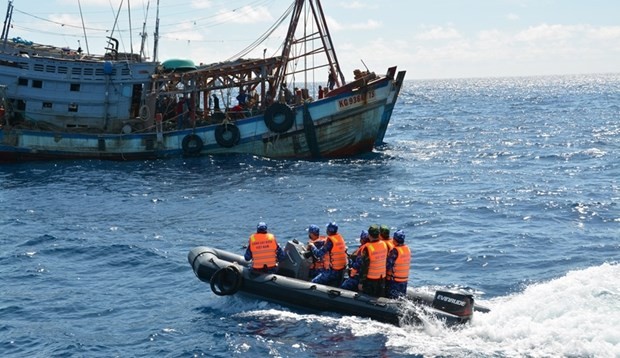 |
| Illustrative image. Photo: VNA |
The site wrote that almost five years after the EC’s warning, Vietnam has been actively focusing on drastic actions following the commission’s recommendations and regulations on IUU fishing in order to remove the warning as soon as possible.
The country has reviewed and supplemented legal documents and enhancing sanctions in the revised Fisheries Law, documents, and action plans of the government. In the last online meeting between Vietnam and the EC in November 2021, EC officials appreciated the changes in terms of legal matters, one of the four key recommendations made by the EC to Vietnam to solve IUU fishing.
Besides, Vietnam has applied information technology and digital transformation in traceability, towards ensuring digitalisation of professional procedures for monitoring and supervising aquatic products throughout value chain in a manner suitable with domestic and international consumption demands.
The site, however, noted that Vietnam is facing many difficulties to be delisted from the group of “warned countries”. Among of them are the monitoring of fishing vessels in the recent years due to the resurgence of Covid-19, and the number of fishing vessels still remained high.
Vietnam should learn experience of its neighbour, Thailand, which had a “yellow card” removed in 2019 after four years, it wrote, adding that the nation can carry out reform in the legal system, invest in the Monitoring, Control and Surveillance (MCS) system, and further cooperate with Regional Fisheries Management Organisations and neighbouring countries.
 |
| A Vietnamese fishing vessel. Photo: VNA |
To address the problem of IUU fishing, the EC has been evaluating exporting countries since 2012. Countries that fail to meet EC standards are issued a "yellow card" warning, followed by a "green card" if issues are resolved, or a "red card" if they are not. A red card can lead to a trade ban on fishery products.
In October 2017, the EC issued a "yellow card" warning against Vietnamese seafood exports after Vietnamese fishermen violated IUU regulations.
Vietnam is striving to prevent, reduce and eliminate IUU fishing in an effort to remove the EC’s ‘yellow card’ warning as part of a scheme on IUU fishing prevention and control by 2025.
By 2025, all fishing vessels with a length of 15m or more will be inspected before leaving port to ensure all documents and equipment are completed as prescribed; 100% of fishing vessels of 15m or more must be monitored through the Fishing Vessel Journey Monitoring System when at sea and will be inspected when entering port; 100% of aquatic output from domestic fishing must be inspected and supervised when loading and unloading at fishing ports according to regulations; and 100% of seafood from foreign catches arriving at Vietnam's seaports must be inspected and monitored in accordance with the UN Food and Agriculture Organisation (FAO)’s 2009 Agreement on Port State Measures (PSMA).
To that end, Vietnam will focus on intensifying communications on IUU fishing prevention and control; completing a legal framework, mechanisms and policies; investing in upgrading and completing fisheries infrastructure and consolidating organisational apparatus; and enhancing the capacity of fishing ports.
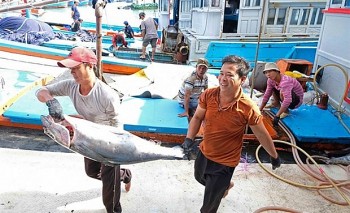 | EC Official's to Visit Vietnam to Review IUU Fishing Fight Vietnam has built and perfected a legal system on fisheries to ensure effectiveness and efficiency; implemented measures to reduce IUU fishing activities; and stop and ... |
 | More Efforts to Handle IUU Fishing at Sea and Ports Relevant departments, sectors, agencies and localities have been urged to work harder to encourage local fishermen to avoid violations. |
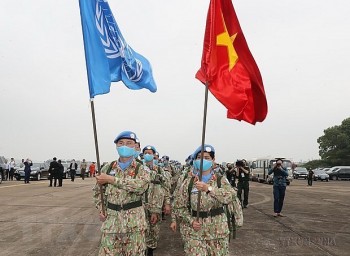 | Vietnam News Today (Oct. 10): Vietnam Gains International Trust Due to Responsible Contributions Vietnam News Today (Oct. 10): Vietnam records 371 new Covid-19 cases on October 9; Vietnam attends 6th meeting of CPTPP Commission in Singapore; Vietnam gains ... |
Recommended
 Focus
Focus
35 Years of FES in Vietnam: Fostering Dialogue, Advancing Equity
 Friendship
Friendship
VUFO Appreciates Contributions of American Veterans in Overcoming Consequences of War
 Focus
Focus
VUFO, FES Continue to Promote Cooperation to Support Development
 Focus
Focus
Vietnam - Belarus Sign Cooperation Documents
 Focus
Focus
Vietnam-Austria Relations: Unlocking the Potential for Cooperation in Key Areas
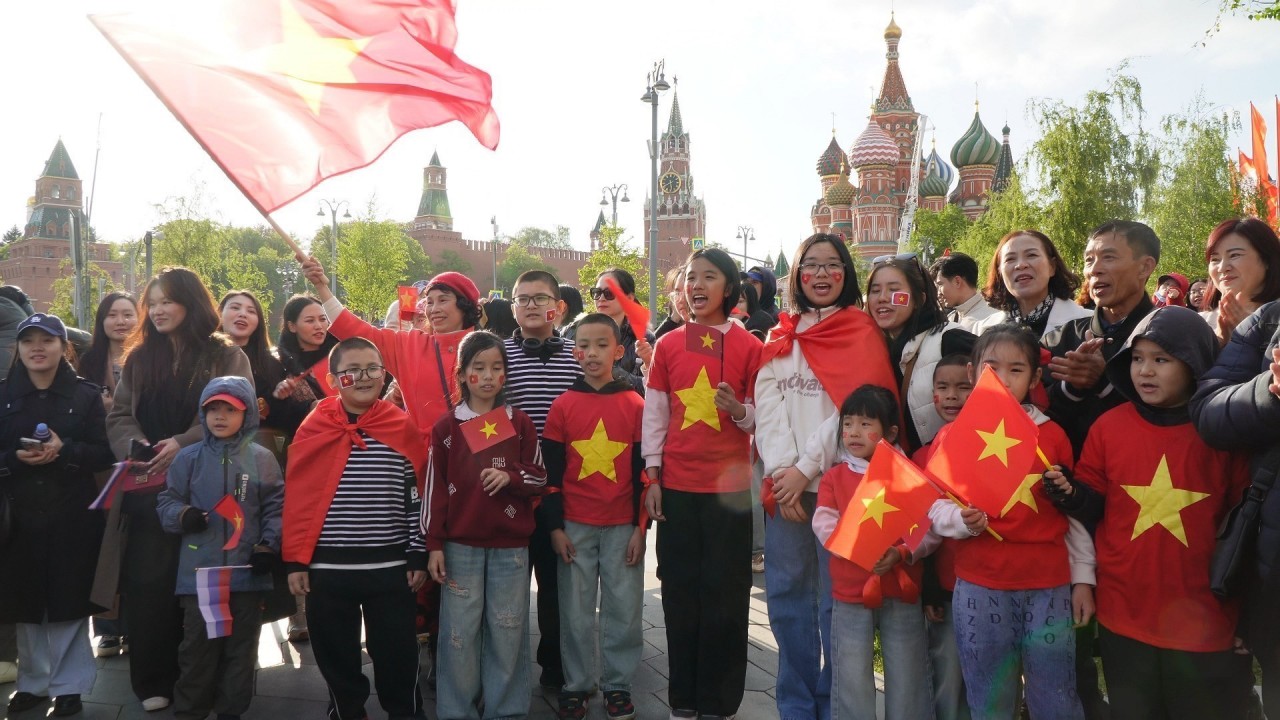 Focus
Focus
Overseas Vietnamese in Russia Welcome Vietnam People's Army Delegation at Red Square
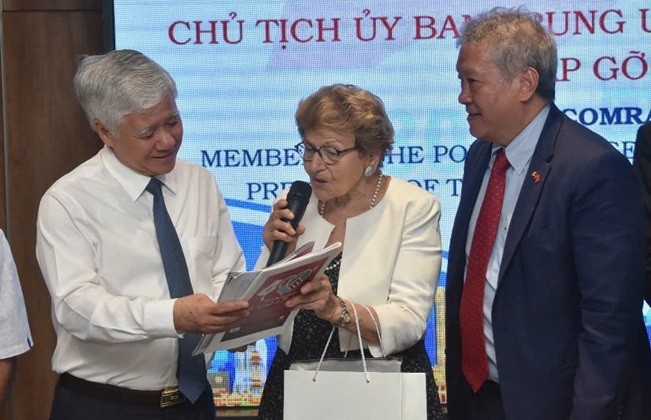 Friendship
Friendship
Vietnam Deeply Values and Remains Grateful for Unwavering Support from Intl Friends
 Focus
Focus

